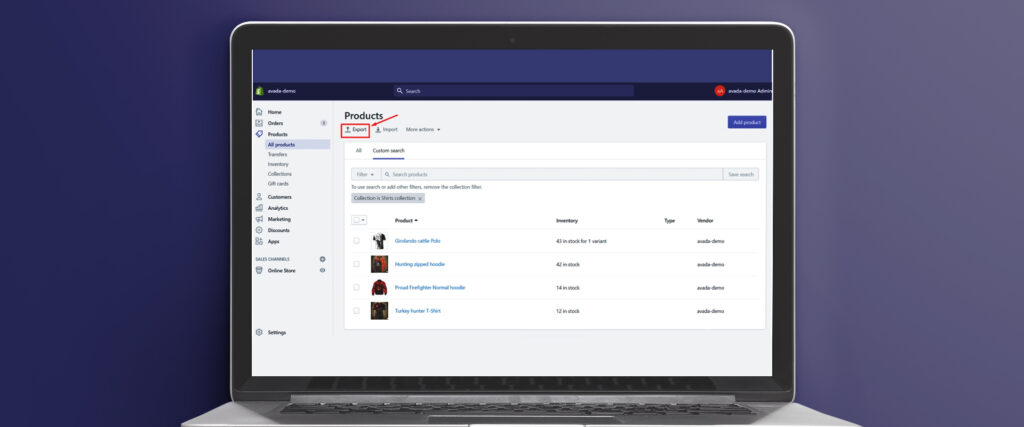The Covid-19 crisis has provided the impetus for online commerce. The increase in online spending in India is estimated to grow from $39 billion in 2019 to $200 billion over the next five years, as per Avendus Capital. Besides the proliferation of online shopping behaviour, it has also underlined the importance of brands having a direct relationship with the consumers. Troubled by supply chain disruptions and limited operating hours of retail shops, several brands are taking the D2C channel for better reach and distribution of inventory by skipping the middlemen. Online storefronts that touted to be as nice-to-have business capabilities are now must-haves for brands. D2C channel enables business owners autonomy on pricing, offers a personalised shopping experience, with comprehensive real-time access to customers.
The future of D2C consumer business seems promising as Avendus Capital estimates the D2C market to be a $100 billion market by 2025.
Eyeing the immense potential in direct selling, the channel is now being adopted by traditional players verticals across fashion and apparel, cosmetics, white goods, wearables, FMCG, etc.
Marico has launched its D2C portal called Safola Stores selling multiple products under its umbrella to sell directly to consumers. As offline sales hamper Adani Wilmar, it has ramped up its sales channel through its D2C app – Fortune Online where people can purchase edible oils, soya nuggets, ready-to-cook products, etc. Similarly, apparel retail chain Shopper’s store has unveiled over 100 exclusive brands on its online channel. The electricals and white goods manufacturer Havells is investing heavily to build its e-store, which aims to provide services in a D2C manner. During the lockdown phase, Havells has resolved more than half of its customer service issues through video calls or do-it-yourself videos on its social media channels. D2C services also serve as a way to retain customers.
‘‘
The increase in online spending in India is estimated to grow from $39 billion in 2019 to $200 billion over the next five years, as per Avendus Capital.
D2C Channel Adoption Advantages to Businesses
Here are a few reasons why this channel should be adopted by small businesses in India:
Convenient shopping
The buying behaviour of consumers has shifted its gears from seeking only discount to convenience. With online payment options becoming ubiquitous people are finding it convenient to shop within a click. Apart from listing products on aggregators platforms where a significant portion of sales is paid to them, the brands are introducing attractive deals on D2C platforms to entice customers.
Explore Underserved Markets
With the D2C channel, brands get access to a pool of consumer data that reveals buyer’s shopping behaviour and preference which helps them to introduce new products and services to tap into the underserved markets o semi-urban cities thus, breaking the notion of online shopping being a tier-I city phenomenon.
The D2C approach is helping Emami to discern new consumer cohorts and launch exclusive products, Emami, by gathering a data pool of 42 lakh consumers. The influx of several logistics players doing hyperlocal deliveries is also fuelling the adoption of D2C businesses. Mamaearth, a digital-first personal care brand for babies and adults has leveraged the fast-growing logistics system that has made it cross Rs 100 crore revenue mark in less than three years.
Scale faster
D2C brands can expand their product portfolio and launch new products as per consumer trends. The traditional brands are risk-averse that take 18-36 months or more to launch a product after considering internal policies and bureaucracies, whereas on the contrary D2C brands ideate a product and bring it to its fruition in less than 4-6 weeks.
With agile teams, the D2C manufacturers can introduce new innovative products for a pilot test on a small group of audience and receive feedback. This enables D2C firms to understand what their customers like and dislike about the product so that they can make the required adjustments and quickly capitalise on product opportunities.
Targeted marketing
With an independent website powered with AI capabilities, its predictive analytics gives D2C brands access to customer insights, demographics, and shopping patterns, helping them to curate marketing content and strategies, and creates direct linkage.
Unlike traditional brands who receive indirect feedback with ambiguities from the retailers, D2C brands receive quick reviews and feedback which helps them align to the changes suggested.
D2C brands that have become successful in recent times
Selling furniture and mattress online seems impossible since it is a contact-intensive product. People would like to touch and feel the timber used or the softness of the mattress before considering buying. However, Wakefit seems to have disrupted the mattress market by being a digital-first mattress brand. It is catering its products to a diverse set of audiences spanning from millennials to homemakers and sleep-deprived professionals. It has products on its platform so that Indian households even with a monthly income of Rs 30000 can afford it. Today, 30 percent of its business comes from tier-II and tier-III cities.
Interestingly, during the pandemic despite the closed doors of colleges and offices, the Indian digital cosmetic brand Sugar, has witnessed a growth of 60 percent more than the pre-covid sales and generated revenue of Rs 200 crores with over 300,000 orders.
Bombay Shaving Company, an online first D2C men’s grooming startup generates revenues close to more than 100 crores annually through its targeted and intent-based DIY content offerings.
How can Shopify help small businesses become D2C?
India is in the midst of a digital revolution where people are constantly on their phones. Businesses that have an online presence can make their digital storefront easily discoverable to the searches ‘ XYZ near me’. Shopify is a commerce platform that allows any business selling either physical products such as clothes or furniture, digital products such as educational courses or services and consultations to set up an online store, and begin selling. Shopify for businesses provides a one-stop platform for businesses that enables them to create their digital storefront right from its appearance to marketing.
Creating the digital storefront from Shopify
A digital storefront from Shopify can be created from its array of e-commerce website templates from the theme store. The website templates are fully customisable where we can shape and choose the form of the template to suit business offerings by adding logos, changing colours, etc. Shopify’s characteristic feature of secure hosting and streamlined backend admin makes the setup and operation of the online website fast and easy. In backend admin, we can create product catalogues, organize SKUs (Stock Keeping Units), post blogs, and manage all of the content on the site.
‘‘
A digital storefront from Shopify can be created from its array of e-commerce website templates from the theme store.
Designing Using Shopify’s theme store
Shopify’s theme store is a storehouse of more than 70 premium and free e-commerce templates ranging to suit verticals from fashion and apparel, jewellery, electronics, etc. Many of the e-commerce templates found in Shopify’s theme store have been created by world-renowned designers including Pixel Union and Clean Themes. For customisation of a website does not require any prerequisites of HTML or CSS knowledge. We can also customise the homepage’s layout, add banners, slideshows.
Organising the Products store
A clumsy store will result in disappointed customers, this is true for both offline and online channels. In Shopify, we can add products, upload product photos, set stock levels, and manage the online store’s inventory. The products uploaded on the website are sorted by Shopify into categories by the name ‘Collections’.
We can also organise the products on the website by using the ‘Smart Collections’ feature which groups products based on the conditions that we provide. For example, we can create a smart collection of daily essential wear ranging between Rs 199 – Rs 299, it will automatically gather all the products belonging to this price range to create the ‘daily essential wear’ range.
Managing the inventory
Inventory in Shopify can be added in one go or can be bulk imported from an excel file. The inventory editor in Shopify’s order tracker helps to track and manage the inventory.
Customer relationship Management
Customer insights on purchasing behaviour can be gained by creating groups of customers based on filters such as location, money spent, etc.
Content Management System in Shopify
Shopify has an in-built content management system (CMS) for the online store that is used to create web pages and blog posts. The in-built blog software in Shopify helps to import an existing WordPress blog to Shopify, which acts as an efficient sales and marketing tool.
Secured Shopping Cart
Shopify has a reliable and secured shopping cart solution for online stores that is Level 1 PCI compliant and uses 255-bit SSL certificates to keep order information safe. Its shopping cart software allows payment to be accepted through credit cards and PayPal payment gateway by integrating with more than 100 payment gateways.
E-commerce Hosting
Shopify offers a hosted e-commerce solution that offers a content delivery network (CDN) – a large network of servers across the globe to ensure that the businesses can load their online store quickly irrespective of their location. It offers unlimited bandwidth with no hidden fees involved. Businesses need not worry about surprise cancellation or excess bandwidth fees.
Marketing and SEO of online stores
Shopify has an advanced e-commerce CMS and shopping cart which offers built-in SEO features. The SEO feature ensures maximum attraction to the website and lead generation from Google, Bing and Yahoo.
Its SEO-friendly features allow customisation of H1, title and meta tags and automatically generate sitemaps.xml files so that new products and site changes become visible on search engines quickly. Its integration with Google Analytics web helps to track usage data with customer purchases and shopping cart transactions.
Shopping From Apps
The usage of smartphones becoming ubiquitous, Shopify offers free, built-in mobile commerce shopping cart features which help customers to browse products and purchase from the store using their mobile phone. It uses HTML 5 that makes the app compatible with iPhone, Android, Blackberry, and other smartphones.
From the business owner’s side, the app will help them to access information on- the go regarding sales statistics, view products, orders, and customer data.
What is in it for the Businesses adopting D2C Channel?
The retail landscape is changing. Before the emergence of D2C channels, brands hardly interacted with the people who purchased their products. For customer feedback, businesses relied on retailers or wholesalers, market research and surveys on focus groups that could not provide them with precise insights in case a product is failing.
With D2C channel, businesses can understand customer pain points in every stage of the buying process, also giving them access to consumer feedback after the product is sold. This gives them more control over the brand’s pricing, marketing, and more freedom in innovating products. Therefore, without much ado, kickstart your D2C business with Shopify now.





